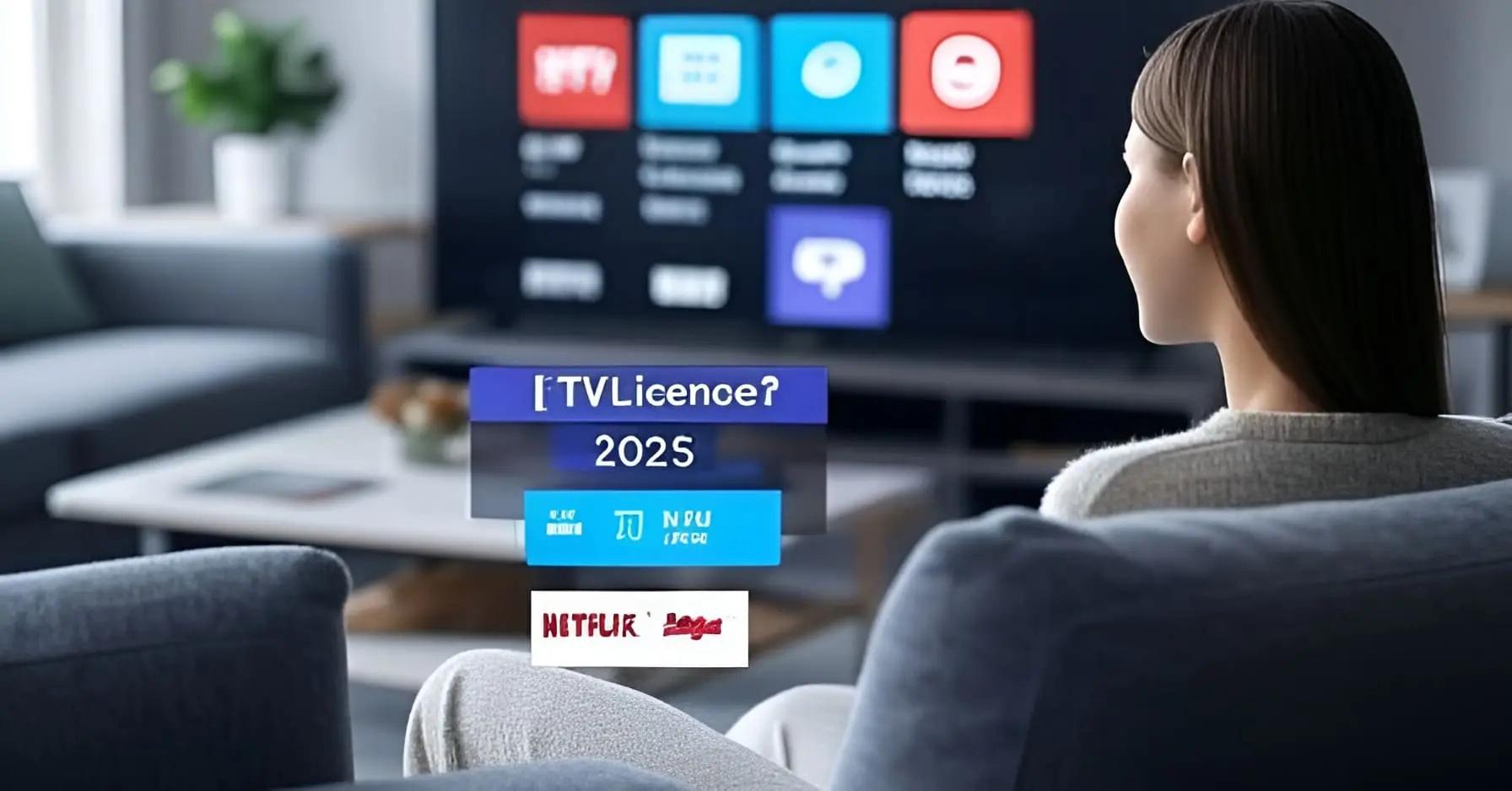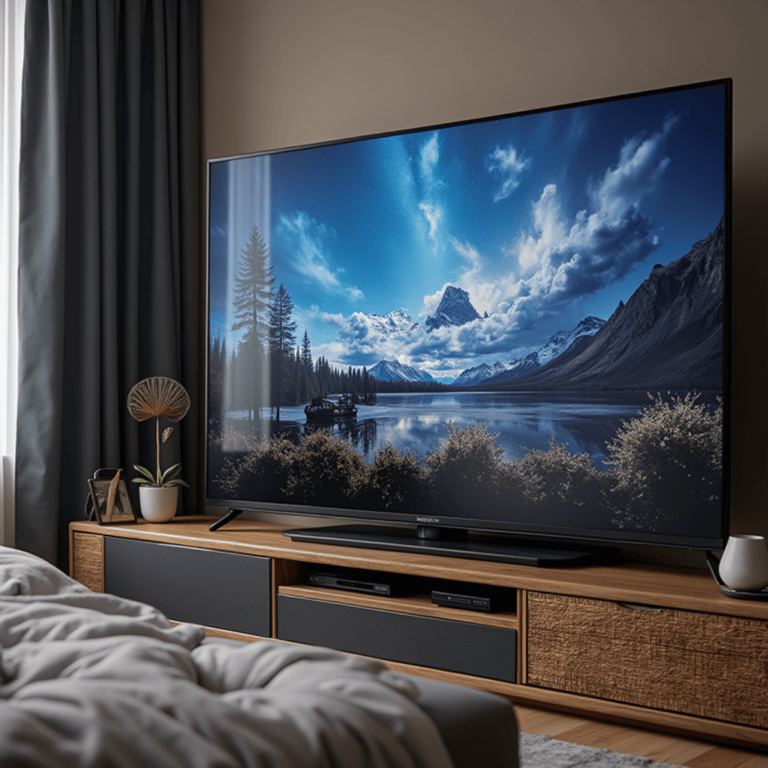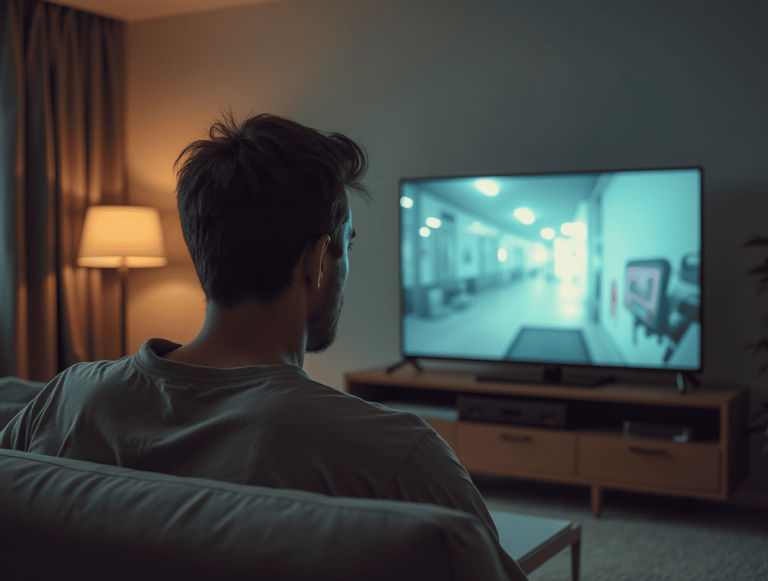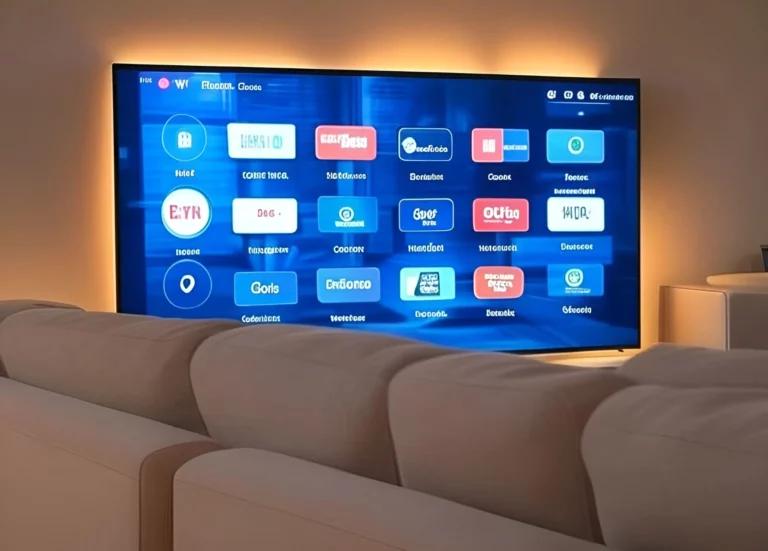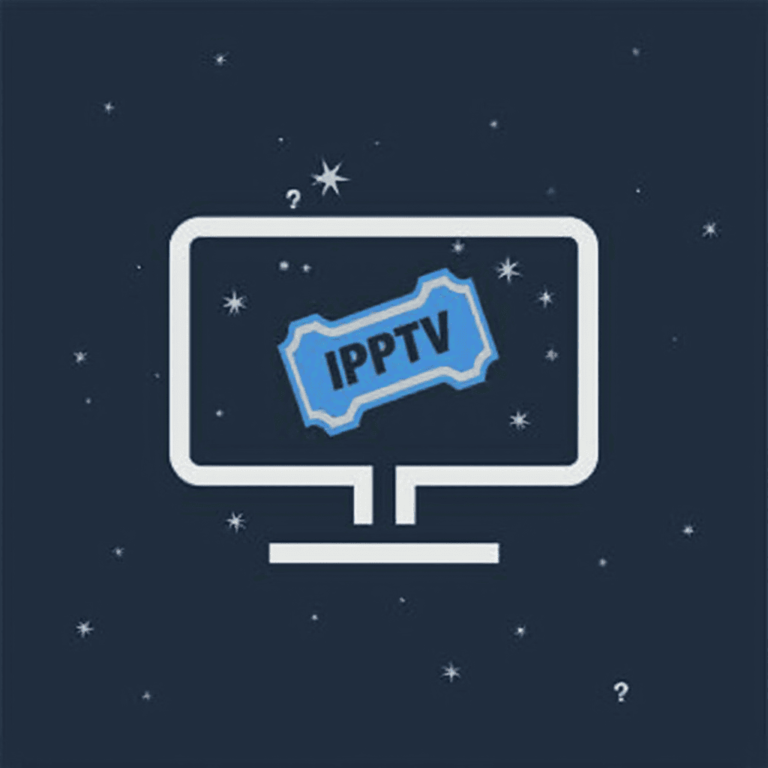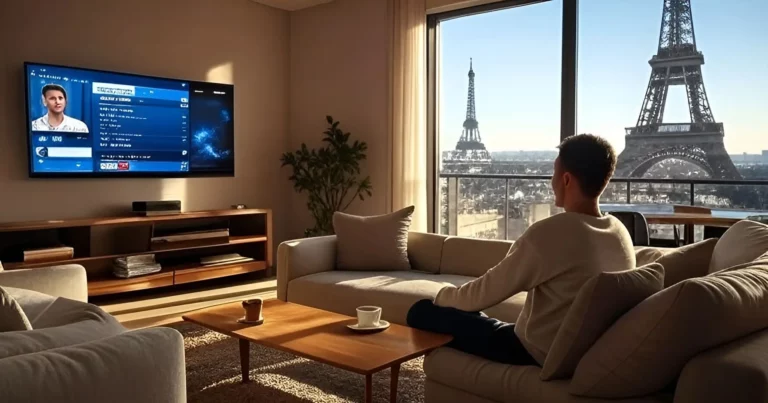Do I Need A TV Licence To Watch IPTV? 2025 Guide
In the UK, a TV Licence is a legal requirement for anyone who watches live television or uses the BBC iPlayer to stream content. This license helps fund the BBC, which is the public service broadcaster in the UK, ensuring it can produce a wide range of programming without relying on advertisements.
Test our IPTV service for free. Click HERE
Understanding the TV Licence Fee
The TV Licence fee is charged annually and is mandatory if you watch live television broadcasts or access content via streaming services like BBC iPlayer. Even if you don’t watch traditional TV channels, but still stream live content, you must have a valid TV licence.
The fee in 2025 for a standard TV licence is £159 per year. If you’re unsure whether you need a licence, it’s important to check your viewing habits. The licence covers live TV broadcasts, catch-up services, and on-demand content.
What Does a TV License Cover?
A TV Licence is required for:
- Live TV broadcasts, including those viewed via the internet or on-demand services.
- BBC iPlayer, whether you’re watching live broadcasts or on-demand content.
- Watching live or recorded TV on any device (including your mobile phone, laptop, smart TV, etc.).
It’s essential to note that the licence does not cover services like Netflix, Amazon Prime, or YouTube unless they are broadcasting live content or if you’re watching the BBC iPlayer. So, if you’re watching pre-recorded shows on these platforms, you are not legally required to have a TV licence.
Who Needs a TV Licence in 2025?
The following people must have a TV Licence:
- Anyone who watches live TV, whether it’s on a TV, computer, or any device connected to the internet.
- Those who use BBC iPlayer to watch live broadcasts or on-demand BBC content.
- Anyone who is in possession of equipment to receive or record live TV broadcasts.
It’s also worth mentioning that the need for a TV licence extends beyond just owning a TV. For example, even if you don’t watch traditional TV, but you have an internet-enabled device that allows you to stream live content, you’ll still need a licence.
Exemptions for a TV Licence
There are some exceptions where you don’t need a TV licence:
- If you only watch on-demand content (such as Netflix or YouTube), and you don’t access any live TV broadcasts, you don’t need a licence.
- If you don’t watch live TV or use the BBC iPlayer, then a TV Licence is not necessary.
Let’s now break down the different aspects of IPTV and how it relates to the TV licensing rules.
What Is IPTV and How Does It Work?
IPTV stands for Internet Protocol Television, which refers to the delivery of television content over the internet, instead of through traditional terrestrial, satellite, or cable formats. Essentially, IPTV allows users to watch TV shows, movies, and live broadcasts using an internet connection, either on a TV, computer, tablet, or smartphone.
Test our IPTV service for free. Click HERE
Definition of IPTV
Unlike traditional broadcasting methods, which rely on radio waves or satellite signals, IPTV uses internet protocols to stream content directly to your device. The content is delivered via a broadband connection (high-speed internet) rather than being broadcast over the airwaves.
- IPTV services can offer live TV broadcasts (like sports, news, or entertainment channels) or on-demand content (such as movies and TV shows).
- IPTV is often confused with online streaming services like Netflix or Amazon Prime Video, but the key difference is that IPTV can include live streaming content, similar to what you would find on cable TV or satellite TV.
Types of IPTV Services (Legal vs. Illegal)
IPTV services can generally be divided into two categories:
- Legal IPTV Services: These are services provided by legitimate companies that offer licensed content. Examples include:
- Factory IPTV (a legal IPTV service you can access via your website, www.factoryip.com)
- Sky Go
- BT TV
- Virgin Media
- Illegal IPTV Services: These are unlicensed IPTV providers that offer access to a wide range of live TV channels, movies, and shows without proper rights or agreements with content creators. While illegal IPTV services may offer lower prices or even free access, they pose significant legal and security risks to users.
- Using illegal IPTV services can lead to fines, legal trouble, and malware or other cybersecurity issues due to the lack of proper encryption and security protocols.
Examples of IPTV Platforms
Here are some popular legal IPTV platforms that offer on-demand and live TV content:
- Factory IPTV: A legal IPTV service offering a wide range of live TV channels and on-demand content.
- Sky TV: A well-known provider in the UK offering both live TV channels and on-demand services.
- BBC iPlayer: A legal IPTV service that allows users to watch BBC content, including live TV broadcasts and catch-up TV.
- Amazon Prime Video: While primarily known for on-demand streaming, Amazon also offers live sports channels through IPTV.
- Netflix: Primarily an on-demand service, Netflix does not provide live IPTV content, but it is often mistakenly associated with IPTV.
On the other hand, illegal IPTV services could include any number of unlicensed providers. These services often offer content at a much cheaper rate but come with significant risks, both legal and security-related.
Is IPTV Legal in the UK?
In the UK, IPTV itself is not illegal, but watching content on an unlicensed IPTV service is where legal issues arise. If you access live TV content or on-demand content from an IPTV service that has not obtained the necessary licenses, you could be breaking the law.
To avoid potential legal consequences, it’s important to only use licensed IPTV services, which ensure that all content is authorized for distribution.
- Legal IPTV services adhere to the regulations set out by the UK government and content providers.
- Illegal IPTV services often bypass these regulations, leading to a risk of prosecution or a hefty fine.
IPTV and TV Licenses: How Does It Fit In?
Since IPTV services can include live TV broadcasts, they fall under the same rules as traditional TV viewing in the UK. If you are using an IPTV service to watch live TV channels or access BBC iPlayer, you will need to pay for a TV Licence. However, if you are only watching on-demand content (like Netflix or Amazon Prime Video) and not using an IPTV service for live broadcasts, you may not need a TV Licence.
In the next section, we will dive into the specifics of whether or not you need a TV Licence to watch IPTV, as this is one of the most important questions when considering the legality of IPTV use in 2025.
Do I Need a TV License to Watch IPTV?
One of the most common questions people have when using IPTV services is: “Do I need a TV license to watch IPTV?” The answer depends on how you use the service and the type of content you’re accessing. Let’s break it down into clear, understandable terms so you can know exactly where you stand legally.
Test our IPTV service for free. Click HERE
Watching Live TV via IPTV — Do You Need a Licence?
If you’re using an IPTV service to watch live TV broadcasts (such as sports, news, or entertainment channels), you will need a TV Licence. This is because live TV broadcasts fall under the same rules as traditional television in the UK. Whether you’re watching through a traditional TV set, a computer, or any internet-enabled device, the law states that if you’re accessing live TV content, you need to pay for a TV Licence.
- Example: Watching live football games or the news through an IPTV provider like Factory IPTV or another legal service would require a valid TV Licence.
- Important Note: Even if you’re not using a traditional television but rather watching on a smartphone, laptop, or tablet, you still need a TV Licence to watch live TV.
Watching On-Demand IPTV — When Is a Licence Not Required?
If you’re only watching on-demand IPTV content, such as TV shows or movies, you do not need a TV Licence. On-demand content refers to services like Netflix, Amazon Prime Video, or other streaming platforms where you can choose what to watch at your convenience, rather than watching something live.
- Example: If you use IPTV to watch on-demand movies or shows, such as those available through Factory IPTV’s non-live streaming options, you don’t need to worry about a TV Licence.
- Key Point: The key difference is whether you’re accessing live broadcasts or simply on-demand content.
IPTV and BBC iPlayer — Why a Licence Is Mandatory
The BBC iPlayer is a unique case. While many IPTV services focus on offering on-demand content or live TV from private networks, BBC iPlayer offers live TV broadcasts and catch-up content. If you use BBC iPlayer via an IPTV service or directly on the BBC iPlayer app, you must have a TV Licence to watch both live TV and on-demand BBC content.
- Example: If you’re streaming a BBC show live through BBC iPlayer on an IPTV platform, whether it’s through Factory IPTV or another provider, you need a TV Licence.
- Why the Licence Is Required: The BBC, as a publicly funded broadcaster, requires everyone who watches its content, live or on-demand, to contribute via the TV Licence fee.
Factory IPTV and TV Licensing Rules
As a legal IPTV service, Factory IPTV follows the same licensing rules as any other provider that offers live TV content. Therefore, if you’re using Factory IPTV to watch live TV channels or stream live content, you must have a TV Licence.
- Example: If you subscribe to Factory IPTV and access live television channels (such as sports, news, or entertainment), you are required to have a valid TV Licence, just like you would need for traditional TV broadcasting services.
- Important Reminder: Even if you only use the service to watch on-demand content (like movies or TV shows), no TV Licence is required as long as the content isn’t live.
Official TV Licensing Website Statement
According to the official UK TV Licensing website, the need for a TV Licence is straightforward: if you’re watching live TV or using BBC iPlayer, you must pay for a TV Licence. If you’re only watching non-live content on streaming services that don’t broadcast live TV (like Netflix, Amazon Prime, or Disney+), a licence is not required.
- Quick Reference:
- Live TV (e.g., football, news, and other live broadcasts): TV Licence required.
- On-Demand TV (e.g., Netflix, pre-recorded shows): TV Licence not required.
- BBC iPlayer (Live or On-Demand): TV Licence required.
In the next section, we will explore some of the exceptions and grey areas when it comes to TV Licences and IPTV usage, as there are a few situations where the rules might not be as clear-cut.
TV Licence Exceptions and Grey Areas
While the rules regarding TV licences and IPTV are relatively straightforward for most users, there are a few exceptions and grey areas where things might get a little more confusing. Understanding these nuances can help ensure that you’re in compliance with UK law while enjoying your IPTV content.
1. Watching IPTV via a Smart TV or Device
Many people stream IPTV on a smart TV or other internet-enabled devices. The question here is: Does the device you use affect whether you need a TV Licence?
- If you’re watching live TV on your smart TV through an IPTV service, you need a TV Licence, regardless of the device.
- If you’re watching on-demand content (such as movies or TV shows) and not accessing live TV broadcasts, you don’t need a TV Licence, even if you’re using a smart TV.
The key takeaway is that it’s the content being streamed — live TV versus on-demand content — that dictates whether a TV Licence is required, not the device itself.
2. Free IPTV Services and the Licence Requirement
There are many free IPTV services available, but it’s important to be cautious when using them. Some users wonder if they need a TV Licence for free IPTV services.
- Free legal IPTV services (such as BBC iPlayer, ITV Hub, etc.) require a TV Licence if you’re watching live content or using the catch-up feature for live TV shows. However, free services that offer only on-demand content don’t require a TV Licence.
- Free illegal IPTV services: If you’re watching live TV broadcasts on a free, unlicensed IPTV service, you are still required to have a TV Licence. The fact that the service is free does not exempt you from the need for a TV Licence if you’re watching live broadcasts.
3. Overseas IPTV Services and UK TV Licences
Many users in the UK access IPTV services from abroad. For example, if you’re watching a service based in the US, such as Sling TV, does it require a UK TV Licence?
- Live content: If you’re watching live TV broadcasts through an international IPTV provider while in the UK, you still need a TV Licence. The location of the IPTV provider does not change the UK rules for live TV.
- On-demand content: If you’re only streaming on-demand content (such as movies, TV shows, etc.), then you don’t need a TV Licence, regardless of whether the service is based in the UK or abroad.
4. Watching IPTV at a Business or Public Place
What about if you’re watching IPTV at a business (e.g., a café, hotel, or pub)? Do you need a TV Licence for this?
- If you’re showing live TV to customers: You need a TV Licence for any business that is showing live TV broadcasts or streaming BBC iPlayer to customers.
- On-demand content in public places: If you’re only showing on-demand content (such as movies or pre-recorded TV shows), a TV Licence is not required, as long as it doesn’t involve live TV broadcasts.
5. IPTV for Personal Use vs. Public Sharing
Another grey area involves whether you’re using IPTV solely for personal use or sharing it publicly with friends and family. If you are watching IPTV privately, the rules are straightforward:
- Private use: Watching live TV or on-demand IPTV content for personal use still requires a TV Licence if the content is live. But if you’re just watching on-demand content, a TV Licence is not needed.
- Public viewing: If you’re watching live TV with a group (e.g., hosting a viewing party), you may be required to obtain a special licence for public viewing of live broadcasts. It’s essential to check with the TV Licensing authority in this case.
6. IPTV Subscriptions — What If You’re Using a Subscription Service?
Some users question whether having an IPTV subscription changes the rules regarding the TV Licence.
- Paid IPTV subscriptions: The cost of the subscription itself doesn’t affect the need for a TV Licence. If the subscription service provides access to live TV broadcasts, a TV Licence is still necessary.
- Free IPTV subscriptions: The same rules apply — if you’re accessing live TV, you need a TV Licence, even if the service is free. For on-demand content, you don’t.
7. What About Watching IPTV on a Laptop or Mobile Device?
Streaming live TV or on-demand content on your laptop or smartphone also falls under the same rules.
- Live TV on mobile devices: If you’re watching live TV via an IPTV service (e.g., a live football match or news broadcast), you must have a TV Licence.
- On-demand content on mobile: If you’re streaming on-demand content only (such as a movie or TV show), no TV Licence is required.
Summary of Exceptions and Grey Areas
- Live TV: A TV Licence is always required, regardless of whether you’re watching on a TV, laptop, smartphone, or any other device.
- On-demand content: No TV Licence required if you’re only watching non-live content like Netflix or pre-recorded shows.
- BBC iPlayer: Requires a TV Licence for both live and on-demand content.
- Free IPTV services: If they broadcast live TV, a TV Licence is required, even if the service is free.
- Overseas IPTV services: The TV Licence requirement is based on whether the content is live, not where the provider is based.
- Business/public spaces: A TV Licence is needed if showing live content to the public.
Penalties for Watching IPTV Without a TV Licence
Many people are unaware of the legal consequences of watching IPTV without the appropriate TV Licence. It’s important to understand the potential penalties you could face for not following the rules, especially as the law around TV Licences and IPTV is strictly enforced in the UK.
Test our IPTV service for free. Click HERE
What Happens if You Watch IPTV Without a TV Licence?
If you’re caught watching live TV or BBC iPlayer content without a valid TV Licence, you could face serious consequences. The penalties for watching live broadcasts without a TV Licence include:
- Fines:
- The maximum fine for watching live TV or BBC iPlayer without a TV Licence can be up to £1,000, plus any legal costs or compensation that may apply. This is a substantial penalty, especially if you’re caught repeatedly breaking the rules.
- A fine can be issued if TV Licensing officers find that you’re watching live content without a licence. You could also face this penalty if you are found guilty after an investigation, either from evidence gathered during inspections or from complaints lodged by others.
- Criminal Prosecution:
- Watching live TV without a TV Licence is a criminal offence under UK law. If you’re prosecuted and found guilty, you could face a criminal record, which could impact your personal and professional life.
- While criminal prosecution is rare for a first offence, it can happen in extreme cases or when fines are repeatedly unpaid.
- Visits from TV Licensing Enforcement Officers:
- TV Licensing has enforcement officers who may visit your home if they suspect you are watching TV without a valid licence. They can use various methods to detect unlicensed viewing, such as equipment designed to detect signals or monitoring IP addresses.
- If they find evidence that you are watching live TV without a licence, they may issue a fine or refer the matter for further legal action.
- Increased Scrutiny:
- If you’ve been caught watching IPTV without a TV Licence once, you may face increased scrutiny and future inspections. The TV Licensing authorities may monitor your activities more closely and, in some cases, could issue a warning or legal notice to ensure that you comply with the TV Licence rules in the future.
How TV Licensing Investigates and Enforces Compliance
The TV Licensing authority has multiple methods to track whether you are watching live TV without a licence. These methods include:
- Detecting IP Addresses:
- TV Licensing monitors IP addresses to detect if users are streaming live TV or using BBC iPlayer without a TV Licence. If they track your IP address and find that you’re accessing live content, you could be subject to an investigation.
- Home Visits:
- Officers may visit your home to inspect whether you have a valid TV Licence. They can ask questions about how you’re consuming TV content and may ask to inspect your devices.
- Information Requests:
- TV Licensing can request information from the public or neighbours about suspected illegal viewing. If someone reports that you’re watching live TV content without a licence, they can follow up with an investigation.
- Warning Letters:
- Before issuing a fine or taking more serious legal action, TV Licensing may send you a warning letter or email. This will remind you of the legal obligations of having a TV Licence and provide you with an opportunity to correct the situation.
Avoiding Penalties: How to Stay Compliant
To avoid penalties, there are a few important steps you can take:
- Always Ensure You Have a Valid TV Licence:
- If you’re watching live TV, BBC iPlayer, or any live content through an IPTV provider (such as Factory IPTV), make sure your TV Licence is up to date and valid.
- Only Watch On-Demand Content Without a Licence:
- If you’re using IPTV to watch on-demand content (like movies or pre-recorded shows), you don’t need a TV Licence, provided the content isn’t live.
- Check Your Subscription:
- Make sure that the IPTV provider you’re using is a licensed service. Legal IPTV providers will often require you to prove that you have a valid TV Licence if you’re accessing live content.
- Stay Informed:
- Be aware of the rules surrounding IPTV and TV Licences, as regulations can change. Regularly check the official TV Licensing website or other official sources to stay up to date with the latest requirements.
Case Study: The Risk of Using Illegal IPTV Services
In 2022, a UK resident was caught using an illegal IPTV service that offered live TV content without a licence. The individual was found to be streaming live sports broadcasts and news channels, which required a TV Licence.
- Penalty Imposed: After investigation, the individual was fined £1,000 for not having a valid TV Licence.
- The Outcome: The resident was also required to pay court fees and other associated legal costs, totaling more than £1,500. Additionally, the individual’s case became part of an ongoing crackdown on illegal IPTV use in the UK.
This case highlights the risks of using unlicensed IPTV services and underscores the importance of ensuring compliance with TV Licence regulations.
Test our IPTV service for free. Click HERE
Summary of Penalties for Watching IPTV Without a TV Licence
- Maximum fine: Up to £1,000 for watching live TV without a licence.
- Criminal prosecution: Can result in a criminal record if you are repeatedly caught or prosecuted.
- Investigation methods: IP address tracking, home visits, and information requests.
- How to stay compliant: Ensure you have a valid TV Licence if watching live TV, and stick to on-demand content if you don’t have a licence.
How to Get a TV Licence and Avoid Issues with IPTV
Now that we’ve discussed the importance of a TV Licence and the potential consequences of not having one, it’s time to look at how to get a TV Licence and how you can stay compliant while enjoying your IPTV service. Whether you’re new to streaming or have been using IPTV for years, understanding the process of obtaining and maintaining a TV Licence will help you avoid any legal issues.
1. How to Apply for a TV Licence
Getting a TV Licence is a straightforward process, and there are several ways to do so. Here’s a breakdown of the main steps:
- Online Application:
- The easiest and quickest way to apply for a TV Licence is to do so online. You can visit the official TV Licensing website and fill out a short form.
- During the application, you’ll need to provide some basic information, such as your name, address, and the date you moved into your current property.
- You will also need to specify how you plan to watch live TV or use BBC iPlayer (whether it’s via a TV, computer, or mobile device).
- The process takes just a few minutes, and you can pay for your TV Licence with a debit or credit card.
- Payment Options:
- A TV Licence currently costs £157.50 per year (2025 rate).
- You can choose to pay the full amount upfront or spread the cost over monthly payments. There are also options for direct debit or paying by cheque.
- If you’re on a low income or receiving certain benefits, you might be eligible for a discount or exemption. Make sure to check eligibility on the TV Licensing website.
- TV Licence for Multiple Devices:
- A single TV Licence covers all the devices in your home. This means that as long as you have one licence, you can watch live TV on any device (e.g., a smart TV, mobile, tablet, or computer).
- However, if you’re using an IPTV service in a business setting or commercial venue, you may need to apply for a special TV Licence for public use.
- Receive Your TV Licence:
- Once your application is processed and payment is made, you will receive your TV Licence by post. You can keep the paper version as proof of payment, or alternatively, you can access your licence details online at any time through your TV Licensing account.
2. What Happens if Your TV Licence Expires?
A common question is what happens if your TV Licence expires while you’re still watching live content or using BBC iPlayer.
- Renewing your TV Licence: It’s essential to renew your licence before it expires to avoid penalties. You can set up an automatic renewal reminder so you’re notified in advance.
- What happens if you don’t renew: If your licence expires and you continue to watch live TV or use BBC iPlayer, you risk being caught in an investigation, which could lead to a fine or prosecution.
3. When Do You Not Need a TV Licence?
Although the majority of people need a TV Licence if they’re watching live TV, there are certain situations where you don’t need one:
- Only Watching On-Demand Content:
- If you’re only streaming on-demand content (e.g., movies, TV shows), you don’t need a TV Licence unless you watch live TV or use BBC iPlayer to watch live broadcasts.
- Exemptions for Certain People:
- If you’re over 75 years old, you may be eligible for a free TV Licence (subject to certain conditions).
- People who are blind or have severe visual impairments may also be eligible for a discounted TV Licence.
- No Live TV Broadcasts:
- If you’re not watching live broadcasts at all, either via IPTV or traditional methods, you don’t need a TV Licence. For example, watching pre-recorded content, such as films on demand, is entirely licence-free.
4. How to Avoid Issues with IPTV and Stay Compliant
To ensure you never run into any problems with IPTV services, here are some best practices to follow:
- Check the Legality of Your IPTV Service:
- Before subscribing to an IPTV service, make sure it’s a legal one. Avoid services that provide illicit access to live TV channels, as these can lead to legal issues and may require you to have a TV Licence.
- Watch Only On-Demand Content Without a Licence:
- If you’re watching non-live, on-demand content from services like Netflix, Amazon Prime, or Disney+, there is no need for a TV Licence. Be sure that the content is genuinely on-demand and not live broadcasts.
- Keep Track of TV Licence Expiration:
- Mark the expiry date of your TV Licence in your calendar or set an automatic reminder to renew it. This way, you won’t accidentally let your licence expire while still watching live TV.
- Consider Your Devices:
- Whether you’re streaming IPTV on a smart TV, laptop, mobile, or tablet, it’s the content you’re watching (live TV vs. on-demand) that determines the need for a TV Licence, not the device itself.
- Stay Informed About Legal Changes:
- TV Licence rules can evolve, so it’s important to stay up to date. Subscribe to TV Licensing newsletters or regularly check the official website for updates on rules and pricing changes.
- Consult the TV Licensing Authority:
- If you’re unsure about whether you need a TV Licence for your IPTV usage, it’s always a good idea to contact the TV Licensing authority directly. They can provide specific guidance for your situation.
Test our IPTV service for free. Click HERE
Summary: How to Get a TV Licence and Stay Compliant with IPTV
- Apply online: The easiest and fastest way to get your TV Licence is to apply on the TV Licensing website.
- TV Licence cost: The standard TV Licence costs £157.50 per year.
- Exemptions: Certain people, like the elderly or visually impaired, may qualify for discounts or free licences.
- Stay compliant: Ensure you have a valid TV Licence if you watch live TV or BBC iPlayer, and avoid using unlicensed IPTV services to prevent fines and penalties.
Frequently Asked Questions (FAQs)
1. Do I Need a TV Licence to Watch IPTV?
Yes, you need a TV Licence to watch live TV or use BBC iPlayer, even if you’re watching through an IPTV service. A TV Licence is required for live broadcasts, but not for on-demand content.
2. What Happens if I Watch IPTV Without a TV Licence?
If you watch live TV or use BBC iPlayer without a valid TV Licence, you could face a fine of up to £1,000 and potential criminal prosecution. You might also receive visits from TV Licensing enforcement officers.
3. How Can I Get a TV Licence?
You can apply for a TV Licence online at the TV Licensing website. The process is quick, and you can pay annually or through monthly instalments. The cost is £157.50 per year in 2025.
4. Do I Need a TV Licence for On-Demand IPTV Content?
No, you don’t need a TV Licence to watch on-demand content, such as films, TV shows, or pre-recorded material, as long as you’re not watching live TV or using BBC iPlayer.
5. Are There Any Exemptions from the TV Licence?
Yes, certain people may be eligible for exemptions or discounts. For example, individuals over the age of 75 may qualify for a free TV Licence, and people with severe visual impairments may receive a reduced fee.
6. How Can I Avoid Legal Trouble with IPTV Services?
To avoid issues, always ensure that your IPTV service is legal. Only watch live TV content if you have a valid TV Licence, and stick to on-demand services when you don’t. Keep track of the expiry date of your licence to stay compliant.
7. How Do I Know if My IPTV Service Is Legal?
Ensure your IPTV service provides legitimate access to TV content. Be cautious with providers offering free or cheap live TV access without clear licensing information. Legal IPTV services are transparent and require you to confirm your TV Licence status if you’re watching live broadcasts.
Final Thoughts — Stay Informed and Stream Legally
As we’ve discussed throughout this guide, navigating the rules around IPTV and TV Licences in 2025 is essential for any viewer who wants to stream legally and avoid hefty fines. Remember, the rules are clear: if you’re watching live TV or using BBC iPlayer, a valid TV Licence is required, regardless of whether you’re using traditional methods or IPTV services.
Stay compliant by keeping track of your TV Licence renewal, checking whether your IPTV service is legal, and understanding when you don’t need a TV Licence (for on-demand content). Avoid the risk of fines and legal action by making sure you understand your rights and obligations when streaming.
At Factory IPTV, we always encourage our users to stay informed and enjoy content legally, ensuring a smooth, stress-free streaming experience. If you have any doubts about whether you need a TV Licence or how to get one, don’t hesitate to visit the TV Licensing website or contact their customer support team for guidance.
Test our IPTV service for free. Click HERE

